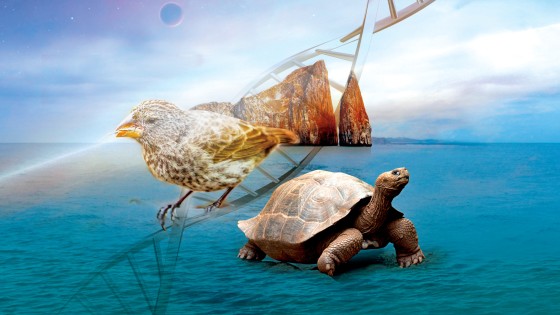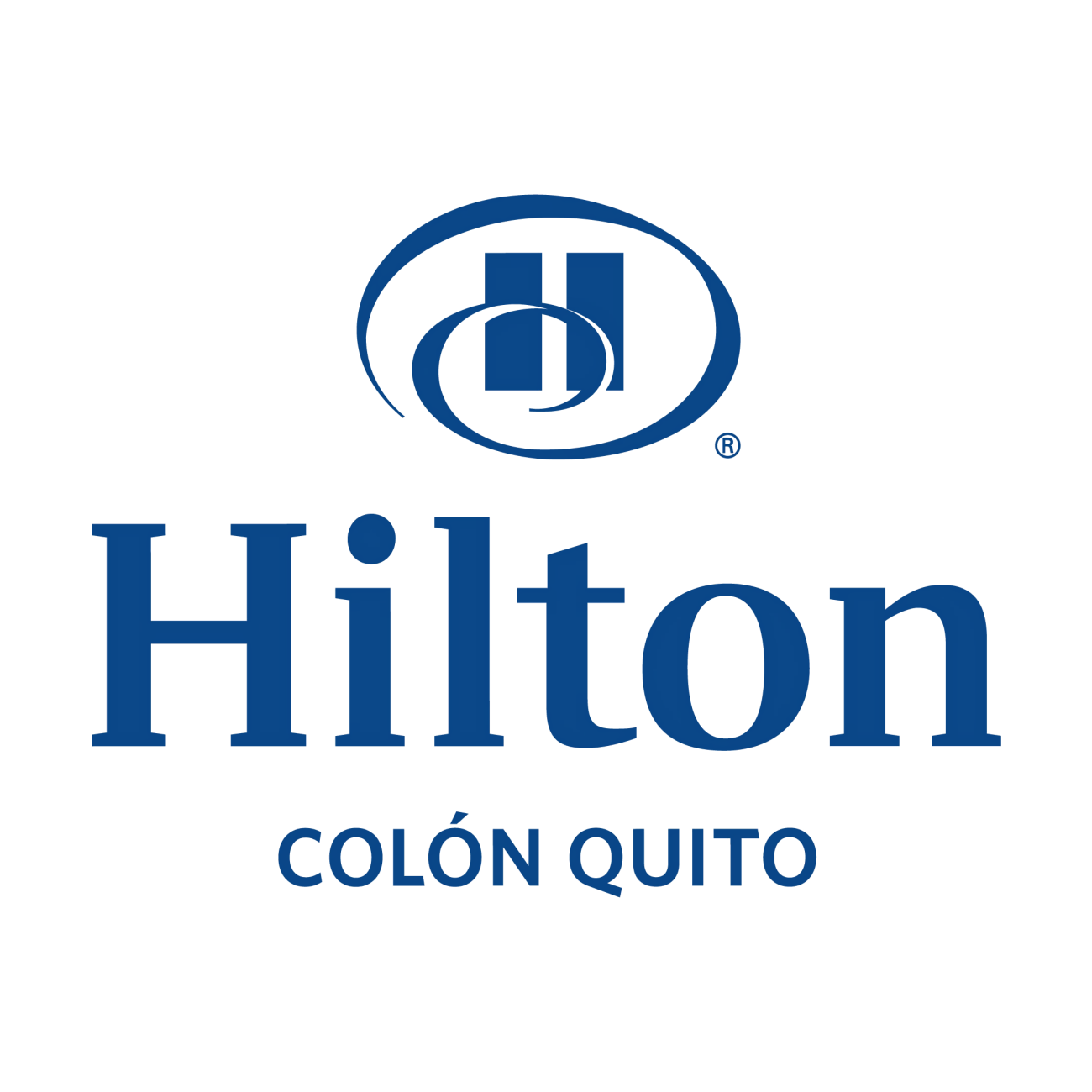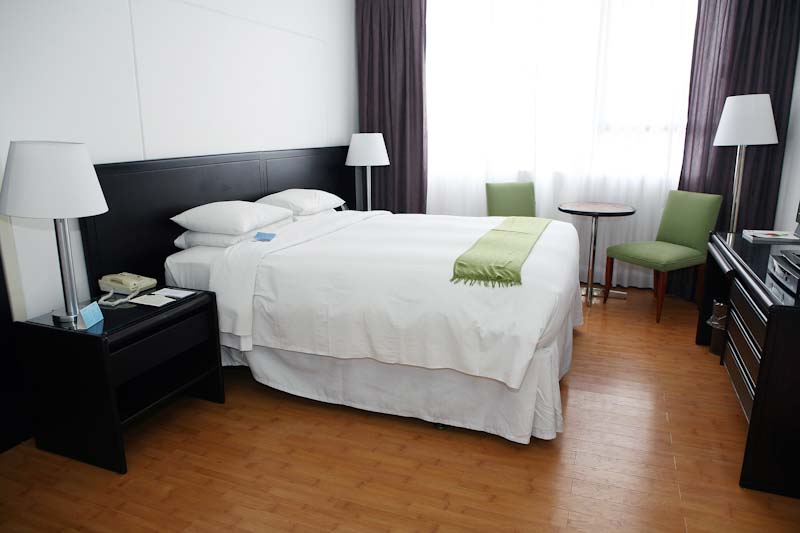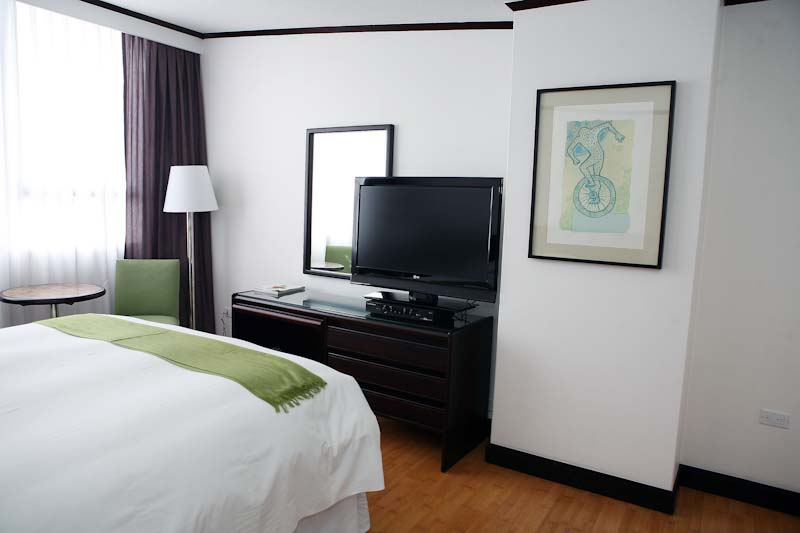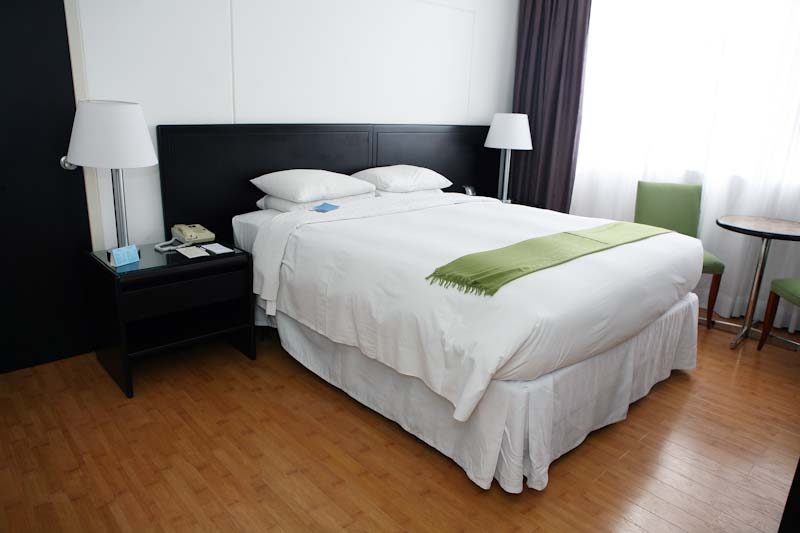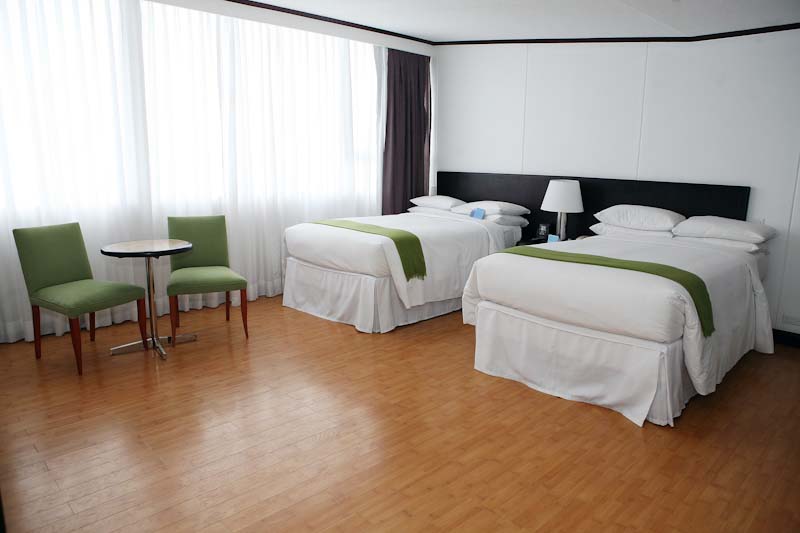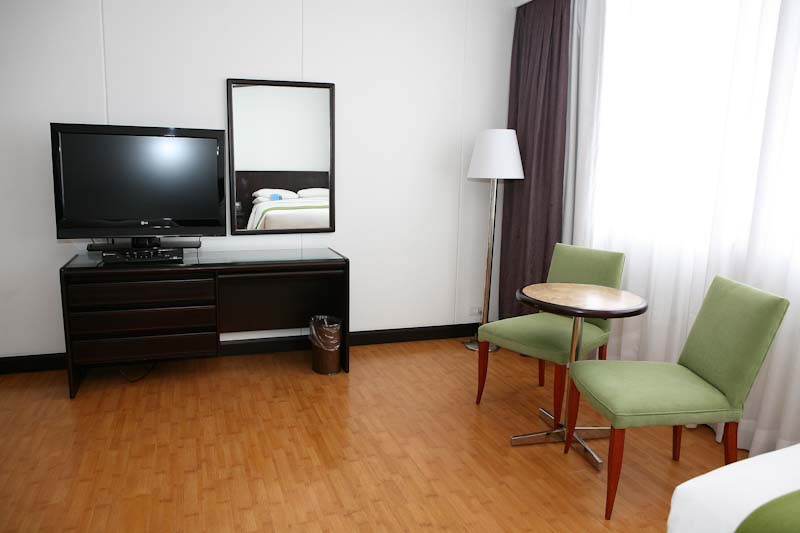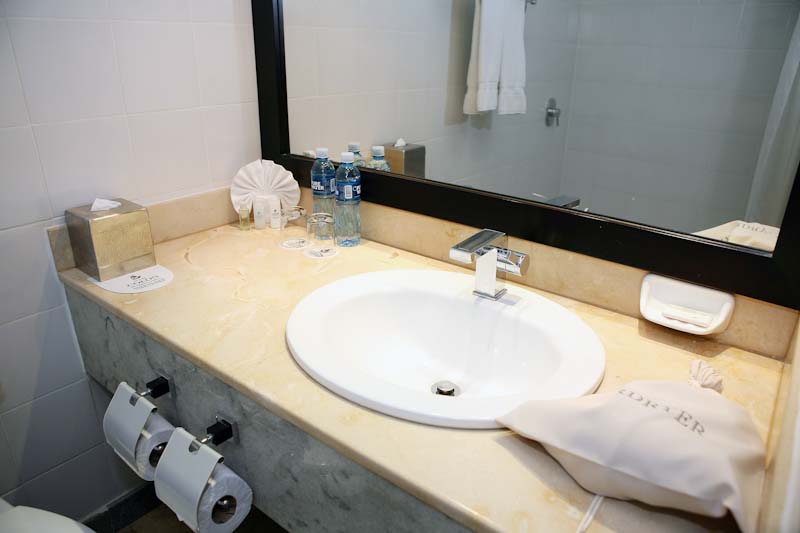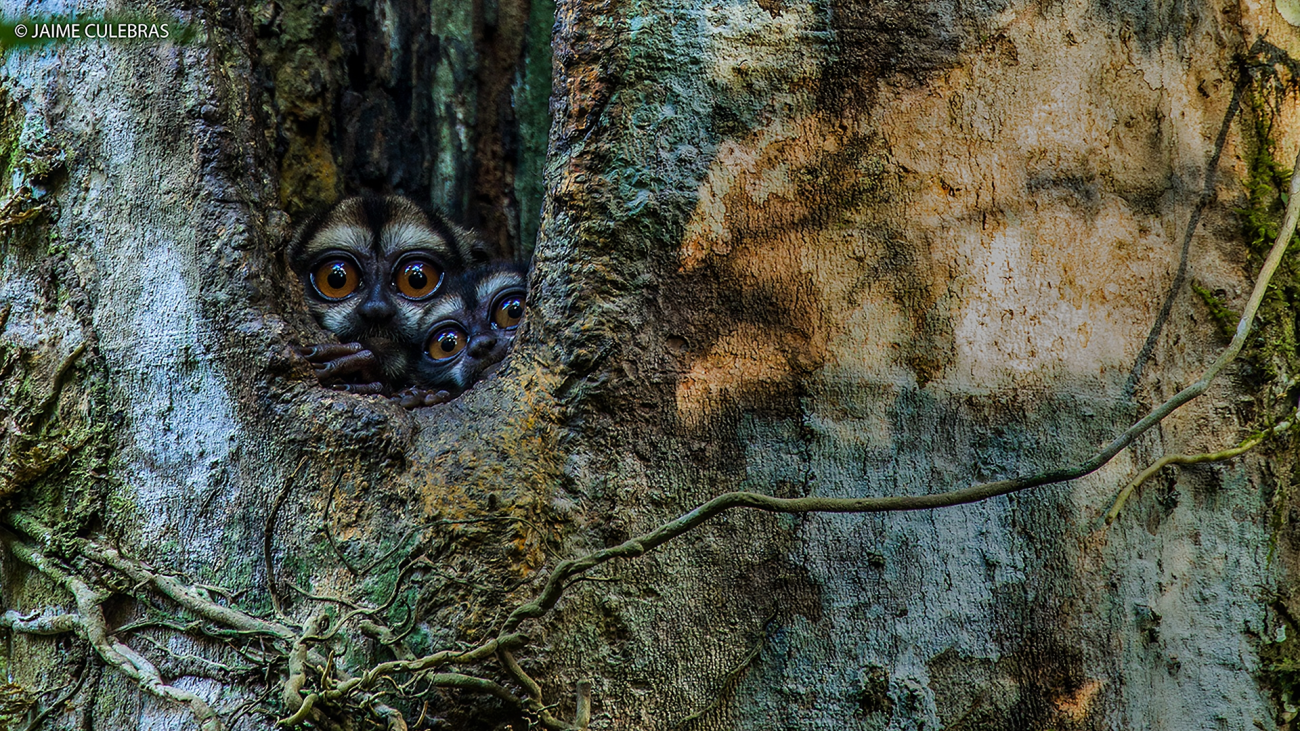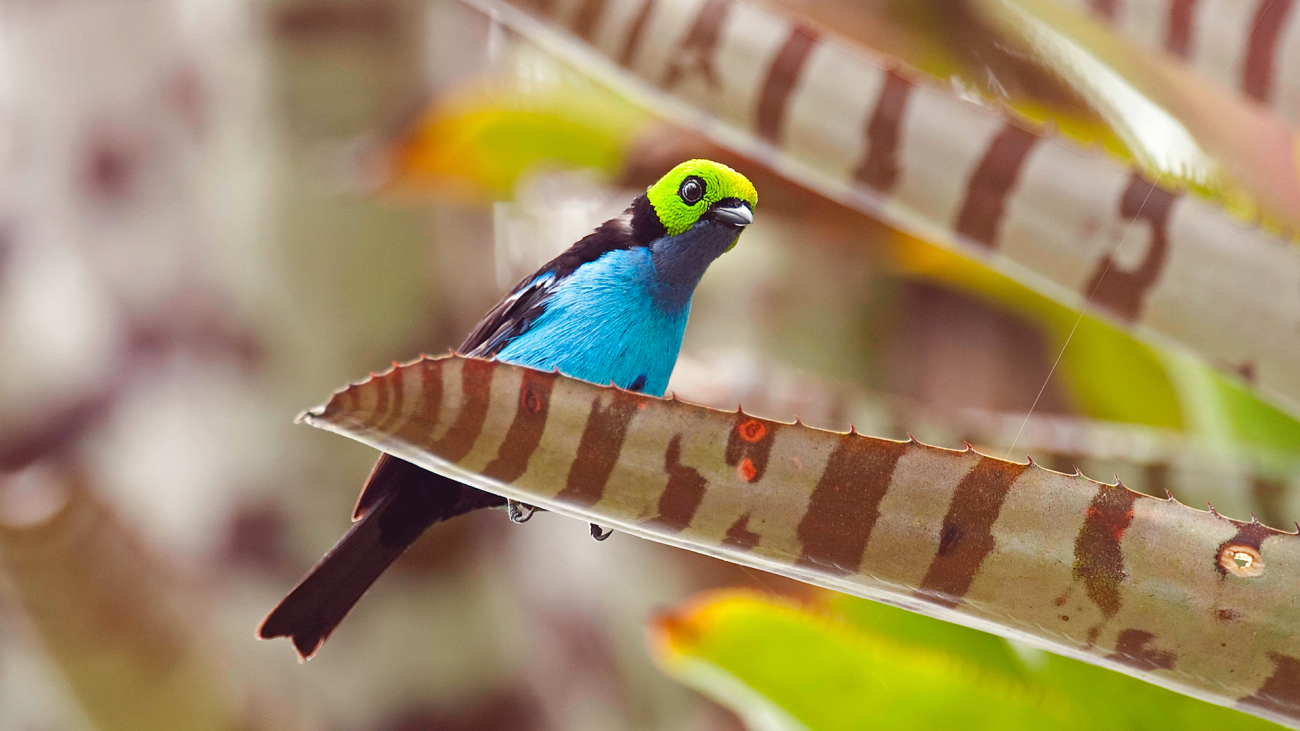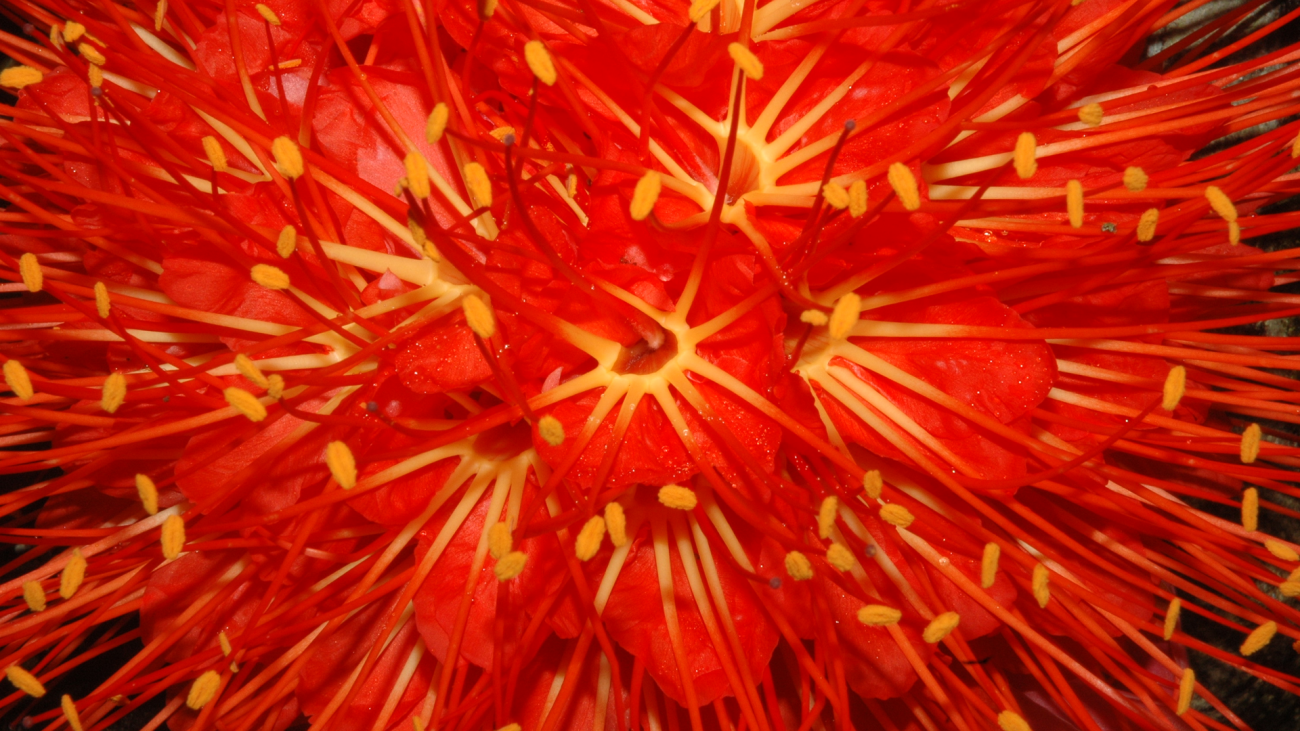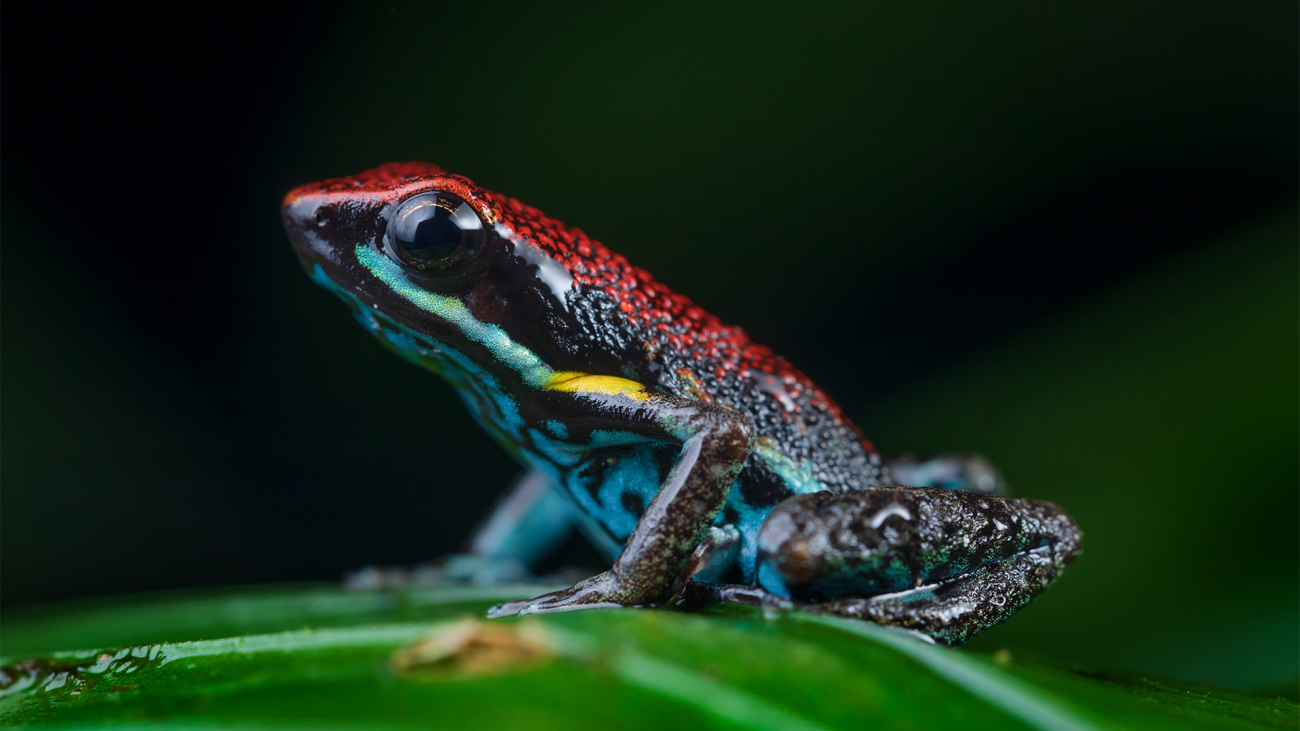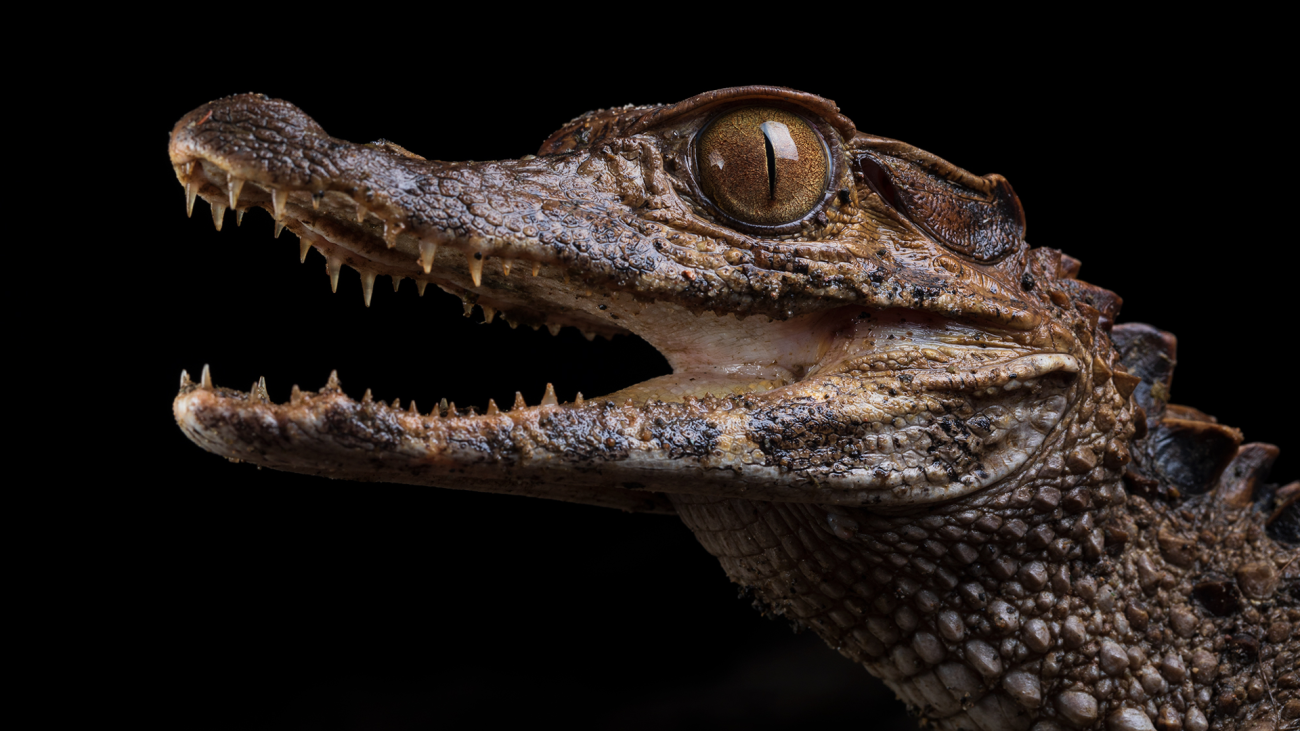Origins 2023
Purpose and Scope
The International Society for the Study of the Origin of Life (ISSOL) and the International Astronomical Union (IAU) Astrobiology Commission (F3) have the great pleasure of inviting all of those interested in the scientific aspects of the origin of life and the search for life beyond Earth and related issues to attend Origins 2023,. This conference provides an important opportunity for astronomers, biologists, chemists, natural historians, planetary scientists and others to meet and tackle the issue of the transition from non-living systems to the living state and the search for life beyond Earth. Some of the principle aims and goals of the conference are:
- Understand how planet Earth formed and the possibility that habitable exoplanets could form around other stars
- Understand how organic matter involved in life’s origin could have been formed and transitioned to a living system;
- Share new results regarding the physico-chemical environments on the early Earth;
- Exchange studies on the evolution of life at its earliest stages and identify the traces left in the
geological record; - Examine the possibility that a similar process could have evolved in other places of the solar system or exoplanets;
- Consider the philosophical and historical issues associated with the developments of these
research approaches.
Participation from early career researchers will be particularly welcome at the conference.
General Topics
- Chemistry before planets (molecular clouds, proto-planetary nebulae, small bodies...)
- Earth in context: formation and evolution of (exo)planetary systems
- Early Earth systems: atmosphere, lithosphere, ocean
- From prebiotic chemistry to (proto)biology
- Astrobiology and the origin of life: history, philosophy, education and outreach
- Protocells, cells, extremophiles & communities
- Early traces of life & the co-evolution of Earth and life
- Searches for habitable environments: from Earth to Exoplanets
- Searches for evidence of life in the Solar System and beyond
Organizers
Local Organizing Committee:
- Antonio Lazcano UNAM
- Arturo Becerra UNAM
- Jim Cleaves CIW
- Hervė Cottin LISA/UPEC
- Carlos Montufar USFQ
- Diego Quiroga USFQ
- Patricia Sierra USFQ
- Ana Teresa Pérez USFQ
Scientific Organizing Committee
- Jim Cleaves (ISSOL, USA) (Co-Chair)
- Hervé Cottin (IAU, France) (Co-Chair)
- John Brucato (IAU, Italy)
- Aaron Engelhart (ISSOL, USA)
- Julio Angel Fernandez Alvez (IAU, Uruguay)
- Misato Fukagawa (IAU, Japan)
- Paul Higgs (ISSOL, Canada)
- Zita Martins (IAU, Portugal)
- Connie Meinert (ISSOL, France)
- Antonio Lazcano (ISSOL, Mexico)
- Alicia Negron-Mendoza (ISSOL Mexico)
- Masatoshi Ohishi (IAU, Japan)
- Sudha Rajamani (ISSOL, India)
- Patricio Rojo (IAU, Chile)
- Nicolle Zellner (ISSOL, USA)
- Yufen Zhao (ISSOL, China)
Quito
Quito, formally San Francisco de Quito is the capital and the largest city of Ecuador. At an elevation of 2,850 meters (9,350 ft) above sea level, it is the second-highest official capital city in the world, after La Paz, and the one which is closest to the equator. Quito has a tropical highland climate. Because of its elevation and its proximity to the equator, Quito has a fairly constant cool climate. The average temperature at noon is 18.7 °C (65.7 °F) with a normal night-time low of 9.3 °C (48.7 °F) The annual average temperature is 14 °C (57 °F). The city experiences only two seasons: dry and wet. The dry season, June through September (4 months) is referred to as summer; the wet season, October through May (8 months) is referred to as winter. Annual precipitation, depending on location, is approximately 1,000 mm (39 in).
It is located on the eastern slopes of Pichincha, an active stratovolcano in the Andes Mountains. With a population of 2.800.000 (in 2022), Quito is the most populous city in Ecuador. It is also the capital of the Pichincha province and the seat of the Metropolitan District of Quito.
Due to its geographical location and elevation, Quito receives a great amount of solar radiation, being one of the locations in the planet that receives the most.
The historic center of Quito has one of the largest, least-altered and best-preserved historic centers in the Americas. Quito and Kraków, Poland, were among the first World Cultural Heritage Sites declared by UNESCO, in 1978. The central square of Quito is located about 25 kilometres (16 mi) south of the equator; the city itself extends to within about 1 kilometre (0.62 mi) of zero latitude. A monument and museum marking the general location of the equator is known locally as la mitad del mundo (the middle of the world), to avoid confusion, as the word ecuador is Spanish for equator.
If you want more information about Quito, please visit this page:
On Wednesday August 2nd you will have the opportunity to visit Quito historic center or Quito Middle of the World in a guided tour that will take approximately 4 hours. Following is a description of both tours so you can have an idea of the program.
You can sign up and pay this activity during the first two days of the conference. There will be an information booth at the venue
QUITO HISTORICAL DOWNTOWN
Quito, a world Cultural Heritage Site (Half day excursion)
Quito´s Historical Center, the largest and best preserved in Latin America, displays on its centuries old narrow streets, plazas, churches, monasteries and monuments a superb fusion of cultures and artistic styles which fascinates visitors and represents an unparalleled historic jewel.
Ecuador’s capital, Quito, founded in 1534, sits high in the Andes at an altitude of 2.850m. Quito is a monumental city, built over the ruins of the Inca’s northern imperial seat and a fabulous example of colonial architecture and art. Quito’s center is rich with 16th and 17th century churches and other buildings, which blend traces of European, and Indigenous styles. For these reasons and the outstanding preservation of its rich legacy, UNESCO declared the entire center of Quito a World Cultural Heritage site in 1978. It was the first city in the world to receive this qualification. Surrounded by imposing mountains and volcanoes and an enviable scenery all around, Quito is just minutes away from the Line, which marks our planet’s Latitude 0.0’0’’, the Equator.
This half-day sightseeing excursion offers the best of Quito with its rich cultural legacy, ornate facades, and dazzling gilt altars. The visit may include the Independence Square, The Archbishop’s Palace, The Metropolitan Cathedral, and:
San Francisco which is city`s most ancient large cathedral Its construction started in 1535, just one year after the city’s Spanish foundation, and it was concluded in the early 1600’s. Dominating the eastern flank of the historic namesake Square, the church of San Francisco presides majestically over the square. Inside the view is stunning: gold-panned columns and altars, painted walls and ceilings, the impressive central dome illuminated by the equatorial sun. Most remarkable feature of this church is the fascinating blend of cultures and art styles, between the European and the native indigenous peoples. Here the Christian symbols mix astonishingly yet in harmony with gold-pan Sun Gods and other symbols of the Indian’s own religious beliefs and Cosmo vision.
La Compañia de Jesús, built in 1635 and finished in 1722, is, outside and inside, a masterpiece of baroque art, one of the most beautiful and startling churches in the world. Its external façade is carved with infinite detail on pure granite stones brought from Mt. Pichincha. Inside, the view is awesome: the entire church, its panels, columns, altars, pulpit, ceilings and especially its main altar glitter and sparkle with tons of gold pan, a truly unique sight. Along its walls and altars, remarkable paintings and religious sculptures are found, created by some of the colony’s most celebrated indigenous artists, guided by the hands of Spanish, Flemish and Italian friars
THE MIDDLE OF THE WORLD
(Half day excursion)- 4 hours
A short drive north of the city will lead you to our planet’s Latitude 0 0’ 0’’. This is the place where you can idly stand with one foot on the northern hemisphere and the other one on the southern hemisphere…a unique experience….
The visit may include the giant monument, which marks the Middle of the World, and its surrounding complex, where visitors can learn about the 18th century French Geodesic expedition, one of the first executed under the modern scientific principles, which main´s purpose was to measure the roundness of the Earth.
Nearby is the Intiñan museum known as well as “The trek of Sun” where you will be guided through the wonderful world of the Andean Cosmo vision (view of the nature of the cosmos), Culture and Traditions. Mixed with didactic games where the physic laws show us the unique events that happen at the middle of the world.
Presenter Information
Posters should be printed in size A0 (84.1 x 118.9 cms / 33.1 x 46.8 inch).
Presenters should hang their posters on the morning of Monday July 31, in frames that will be provided at the venue.
Posters should be removed on Friday August 4th in the morning.
Program
| Sunday July 30 | Monday July 31 | Tuesday August 1 | Wednesday August 2 | Thursday August 3 | Friday August 4 | |
|---|---|---|---|---|---|---|
| Morning | Chemistry before planets (molecular clouds, proto-planetary nebulae, small bodies...) | Early Earth system: lithosphere, atmosphere, ocean | Astrobiology and the origin of life: history, philosophy, education and outreach | Protocells, cells, extremophiles & communities | Searches for habitable environments: from Earth to Exoplanets | |
| Afternoon | Keynote speaker + welcome reception | Earth in context: formation and evolution of (exo)planetary systems | Transition from prebiotic chemistry to (proto)biology | 1/2 day off for excursion | Early traces of life & the co-evolution of Earth and life | Searches for evidence of life in the Solar System and beyond |
| Late Afternoon/ Evening | Icebreaker | Poster | Poster | Conference Dinner |
Venue
The conference will take place at USFQ campus, in Quito, Ecuador.
The map below will show the different rooms and auditoriums that will hold the conferences.
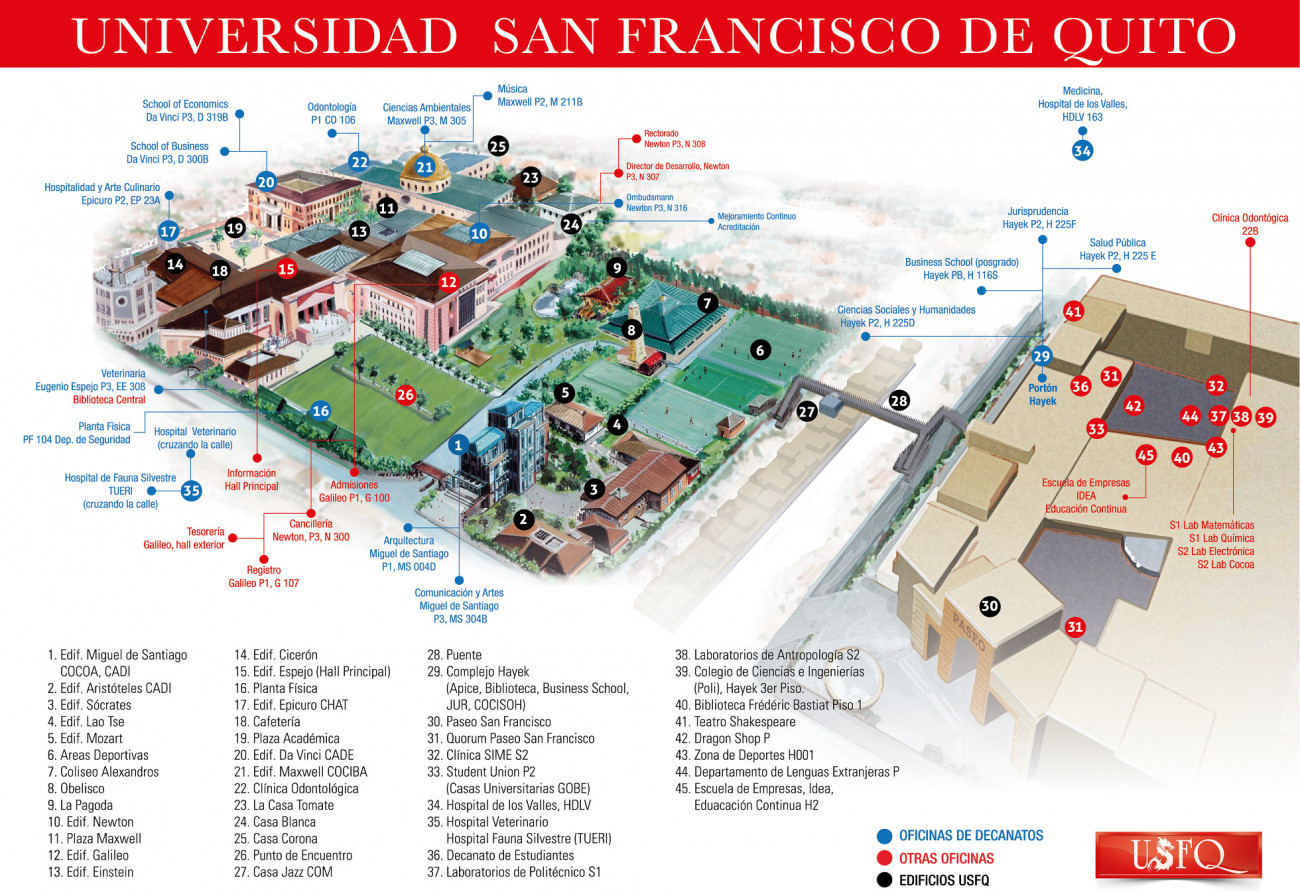
Travel Arrangements
You should be in Quito by Sunday July 30th. Opening/Registration will start at 3 pm at Universidad San Francisco de Quito campus. The travel agency working with us during the conference, Expedition Tours, can help you with your travel arrangements (sales@expeditionsandtours.com). You must make your own travel arrangements. Conference will be held until Friday, August 4th. So you can plan your departure for the night of the 4th or the 5th.
Please be aware that you need to have a passport which is valid for 6 months beyond your entry to Ecuador. Be very careful with this, as immigration authorities won’t let you in if your passport is not 6 months beyond your entrance day. Most countries do not need a visa to enter Ecuador; please check if needed for your own case:
If you are interested in visiting Ecuador before or after the conference, we recommend you contact a travel agency to arrange your trip. Expedition Tours is a serious and well known company that can help you plan a visit. You can take a look at the different packages they offer here:
Transportation
All international flights go through Quito and/or Guayaquil. Several airlines fly to these two airports from different locations in Europe and North-America, South America, Asia and around the world. You can book a flight to either city and be sure to arrive in Quito by July 30th.
Local transportation
The Conference will provide transportation from Quito to Cumbaya Valley (USFQ). Exact pick up and drop up locations will be provided later directly to attendees and previous to your arrival.
As the conference is not arranging international flights, transportation from the airport to hotels must be arranged by the traveler. Taxis can be booked at the airport to your hotel upon arrival at Quito airport. Some hotels also offer shuttle services, please check with your hotel.
Accomodations
Hilton Group Hotels will be sponsoring the conference. Therefore, we have arranged with them special rates for the conference’ participants. Hilton is a worldwide hotel chain that will guarantee the good service and excellent accommodations.
Comfort suites is a more economic lodging with lower daily rates, located in the Hilton complex. For information and reservations contact:
TORRE COMFORT
An economic and safe option located in the Hilton Colon Quito complex is the perfect place to rest and share with 2, 3 or 4 colleagues according to your needs. Transportation to the venue and back will be arranged to all attendees staying in Torre Comfort. Inventroy is limited, for reservations please contact: valeria.cano@hiltoncolon.com or by phone: +593 2 3828350 Ext 1345 (business hours)
Rates:
| Tipo de habitación | Tarifa Corporativa |
|---|---|
| Single Room | $60.00 |
| Double Room | $70.00 |
Third person sharing the same room will apply a supplement of $35 plus taxes, per person per night. Breakfast is included.
Please be aware that the double room’ rates that Hampton and Comfort Suites offer are for two people in the same room, sharing the room rate.
You can or course, choose any city hotel for your stay. Closer to the conference we will inform attendees about the transportation arrangements to and from the conference venue, which is approximately 30 minutes away from the city of Quito.
Dining Options
Near Hotel Hilton Colon
Name: KFC
Type of couisine: fast food
Cost aprox: $2-$10
Distance: 200 mt
Schedule: 09h00 to 23h00
Name: McDonald’s
Type of couisine: fast food
Cost aprox: $5-$14
Distance: 200 mt
Schedule: 24hr
Name: Sweet & Coffee
Type of couisine: coffee & bakery
Cost aprox: $2-$20
Distance: 180 mt
Schedule: 08h00 to 21h00
Name: Spanes
Type of couisine: colombian food
Cost aprox: $5-$14
Distance: 200 mt
Schedule: 09h00 to 18h00
Name: La creperola del teatro
Type of couisine: crepes
Cost aprox: $5-$20
Distance: 200 mt
Schedule: 17h00 to 23h00
Name: Suvlaki
Type of couisine: grecian food
Cost aprox: $3-$20
Distance: 350 mt
Schedule: 12h00 to 17h00
Name: Mágico Oriental
Type of couisine: oriental food
Cost aprox: $3-$14
Distance: 400 mt
Schedule: 12h00 to 22h00
Name: Pizza Hut
Type of couisine: italian food
Cost aprox: $7-$30
Distance: 600 mt
Schedule: 11h00 to 23h0
Name: Rincón de Francia
Type of couisine: french food
Cost aprox: $3-$20
Distance: 550 mt
Schedule: 12h00 to 23h00
Name: El Español
Type of couisine: delicatessen
Cost aprox: $3-$20
Distance: 750 mt
Schedule: 07h00 to 23h00
Name: Juan Valdez Café
Type of couisine: coffee and bakery
Cost aprox: $3-$15
Distance: 900 mt
Schedule: 07h30 to 22:30
Restaurants near Hampton Hotel
Sur
Restaurant
Portugal e11-61 y Catalina Aldaz.
Nubori
Restaurant
Catalina Aldaz y Portugal esquina.
Carmine
Restaurant
Catalina Aldaz n34-208 y Portugal.
Registration and Abstract Submission
REGISTRATION AND ABSTRACT SUBMISSION ARE NOW OPEN!
Process :
- Payment
- Registration Form
- Abstract Submission
To attend the meeting, please pay using the payment portal link provided below. Then fill in the registration form using the separate link provided below. To submit an abstract, instructions for doing so are provided after the registration link below.
1. Payment:
NO CANCELLATIONS POSSIBLE BEYOND JULY 1, 2023
Early Bird Registration will be open until May 30th
Professional researchers ISSOL or IAU members $480
Professional researchers $520
Students and Post Docs (+3years) $260
Students and Post Docs (+3 years) members $240
Online Attendees $250
Late Registration will start on May 31st and prices will raise to:
Professional researchers ISSOL or IAU members $580
Professional researchers $620
Students and Post Docs (+3years) $360
Students and Post Docs (+3 years) members $340
Online Attendees $250
2. Registration Form
After paying, please fill in and submit this registration form: https://forms.gle/hSU9uBGNN2SSVYF37
3. Abstract Submission
Abstracts will be accepted until May 31st, 2023.
Abstracts will be considered only after payment of registration.
Please fill in the provided abstract template. Carefully follow the instructions in the template regarding its maximum size (one page) and instructions about how to name your file. You must select the section for which you wish your abstract to be considered and whether you wish an oral presentation, poster presentation, or either. Send your abstract to: origins2023@exobiologie.fr
Please only use this email address for abstract submission.
Important Dates
| Activity | Date |
|---|---|
| Registration opens | February 7, 2023 |
| Abstract submission opens | February 15, 2023 |
| Second announcement | February 15, 2023 |
| Abstract submission deadline | May 31, 2023 |
| End of early registration | May 31, 2023 |
| Schedule with speakers on web site | June 30, 2023 |
| End of online registration | July 15, 2023 |
| Excursion to Galapagos | July 26 to July 29, 2023 |
| Conference | July 30 to August 4, 2023 |
Pre-conference Galapagos tour
San Cristobal (Galapagos) Pre-Conference Trip
USFQ has a campus in the Galapagos Island of San Cristobal and is happy to invite you to visit.
While on the island, we will give you a tour of USFQ San Cristobal Campus and Science Center on July 26th, where you can contact our researchers and see their work. Further details will be provided as the date approaches.
There are several airlines that travel to San Cristobal Island, from Quito and/or Guayaquil: Latam, Avianca and Equair.
We suggest you travel to San Cristobal on July 26th, and fly back to Quito on July 29th, but you can also plan for a longer stay in the island, arriving sooner.
July is a busy month in the Galapagos, therefore we recommend you make your flight and hotel reservations as soon as possible.
If you wish to be part of the ISSOL/IAU group we are helping to get together to visit the island, please contact Ms. Lorena Vega at: lorena.vega@tguio-viajes.com
For accommodations, we have pre-reserved rooms on San Cristobal at the Hotel Miconia: http://www.hotelmiconiasancristobal.com/
which is a nice and very well-located hotel. We have arranged for special rates for the conference participants. For hotel reservations you can contact Kathy at: hotelmiconia@yahoo.com Cel: (+593) 986 - 936 - 975
Please mention you are part of the Origins 2023 group in your communication. Ms. Vega and Kathy will help you with the confirmations and payments that are needed in advance. They can also help you booking specific side-tours you might want to do while there.
We calculate that the tour could cost between $1300 to $2000 per person for the three nights, including flight, hotel, meals and island entrance fees. Besides, in the island you can take guided tours to different sights and activities that will be charged directly.
Hope you have a great stay!
Travel support
Limited travel support is available for younger researchers in need. Preference will be given to Students and Early Carrier Scientist (up to and including PhD+3).
Please send a letter describing your motivation along with a current CV to abb@ciencias.unam.mx.
Post Conference Visit to the Amazon
REGISTRATION FOR THIS VISIT CLOSED ON JUNE 26.
USFQ has a Station in the Amazon and will be happy to host you during your visit to Ecuador.
To be part of that group (maximum 25 people) you will need to contact Carla Larrea at reservastbs@usfq.edu.ec
The excursion begins in Quito, where you will have to get a small plane or ride by car to El Coca.
About the transportation Quito/Coca/Quito: you can take ground transport (~6 hours each way) or fly (~30 minutes each way).
For flight reservations, you can contact Henry Yazán at patricio.yazan@mtagencia.com. Note that our departure time from Coca to the Tiputini Biodiversity Station (TBS) is at 9:30 am. Our staff will meet you at the Yarina Ecolodge dock (in El Coca). We highly recommend flying the day before to avoid delays or cancellations on flights.
Day 1 August 7
Morning:
Travel to TBS. Lots of fauna can be observed during the boat ride in the Tiputini river. Packed lunch.
Afternoon:
Arrival at TBS (3-4 PM). Orientation and settling in.
Evening:
Dinner and optional night hike.
Day 2 August 8
Morning:
Breakfast. Early visit to the Canopy tower, where a great variety of birds like tanagers, toucans and woodpeckers can be seen. Also, primates like woolly, howler and saki monkeys.
Afternoon:
Lunch and rest. Hike on one of the trails of the Station, looking for birds, and mammals, including some of the 10 species of primates that inhabit the area.
Evening:
Dinner. Lecture about the Station Projects by one of our permanent Visitor-researchers
Day 3 August 9
Morning:
Breakfast. Mineral Licks Visits to different clay licks, areas within the tropical forest that contain a great amount of exposed soil which a great variety of animals frequent. With some luck, deer, tapirs, pecaries and monkeys can be seen feeding!!
Afternoon:
Lunch and rest. Hike and visit to the lake, where different species of birds can be seen, including Hoatzins, Caciques and Kingfishers.
Evening:
Dinner. Optional night hike or night float to observe caimans and other wildlife (depending on weather conditions)
Day 4 August 10
Morning:
Breakfast. Hikes focused on specific topics, like medicinal plants, insects, rainforest adaptations, fungus, etc. or simply looking for interesting species for photography
Afternoon:
River float on the Tiputini river looking for wildlife. The highlights include giant river otters and pink river dolphins. Also, you will have a chance to swim in the river!
Evening:
Dinner
Day 5 August 11
Morning:
Breakfast. Trip back to El Coca. Arrival 2-3 PM
There are no afternoon flights to Quito, so you can spend an extra night in Coca and take your flight on the next day, or take private ground transport for the same afternoon, arriving in Quito at about 9:00 pm.
*All our itineraries will be complemented by a briefing before going to Tiputini, to ensure visitors understand the dynamics of the Station.We will also ask you to let us know your experience afterwards, via a Q&A talk or by a short satisfaction survey.
*Lectures:
Our permanent researchers will be happy to give a lecture on their subject of research. A great opportunity to learn more and get involved!
Prices
The Station will offer a special rate for Conference attendees of $380 for the 5 days.
Partners will be charged $480, which is the regular fee.
Land/Boat Transportation fee to the station: $120 per person
Our fees include:
Lodging, three meals per day or lunch boxes according to your itinerary, coffee station, water, towels, and shared/guided activities (subject to change depending on weather conditions)
Not included:
Laundry service.
Internet service (limited) $10 per device.
End to end risk management and insurance coverage through USFQ.
Accident insurance through USFQ.
Tips can be paid directly at the station in cash.
Transfers Quito-Coca-Quito.
Round flight to Coca is approximately $300
Hotel in Coca is approximately $70 per day.
More information:
Meeting code of conduct
ISSOL and the IAU Astrobiology commission are committed to providing a safe and productive meeting environment fostering open dialogue and scientific idea exchange, promoting equal opportunity and treatment for all participants, in an environment free of harassment and discrimination. All participants are expected to treat others respectfully and considerately and alert staff of any dangerous situations or if they witness anyone in distress.
The meeting is intended to be a forum to consider and debate scientific viewpoints in an orderly, respectful, and equitable manner. Speakers and attendees are expected to uphold standards of scientific integrity and professional ethics. The policies described here apply to all attendees, speakers, exhibitors, staff, contractors, volunteers, guests, and any other third-party participants or suppliers involved in the meeting.
The following are examples of types of behavior that are not tolerated during the meeting:
intentionally talking over or interrupting others
engaging in biased, demeaning, intimidating, coercive, harassing, or hostile conduct or commentary, whether seriously or in jest, based on sex, gender identity or expression, sexual orientation, race, ethnicity, national origin, religion, marital status, age, physical appearance, disability, power differential, or other identities
engaging in personal attacks of any kind
commenting on personal appearance
disruption of the event or engaging in harm or threats of harm of any kind
producing or distributing audio or visual recordings of the event in any medium without the explicit consent of the persons concerned by the recordings
producing or distributing photographs of presentations or materials without the explicit consent of the persons concerned by the recordings
engaging in any of the above behaviors on social media in relation to the event or related events
ISSOL and the IAU Astrobiology commission reserve the right to remove an individual from the event without warning or refund, prohibit attendance at future meetings, and notify the individual’s employer.
Reporting Harassment/Misconduct
If an individual experiences or witnesses’ harassment or misconduct and wishes to file a formal report, they should contact ISSOL, the IAU Astrobiology commission or USFQ Staff.
If an individual experiences or witnesses’ harassment or misconduct, it is recommended that, in addition to notifying ISSOL, IAU Bioastronomy or USFQ Staff staff, they write down the details. Their confidentiality will be maintained to the extent that it does not compromise the rights of others.
Information Booklet and Abstracts

